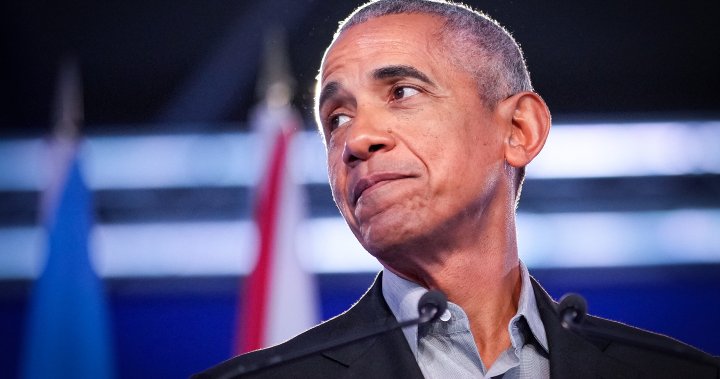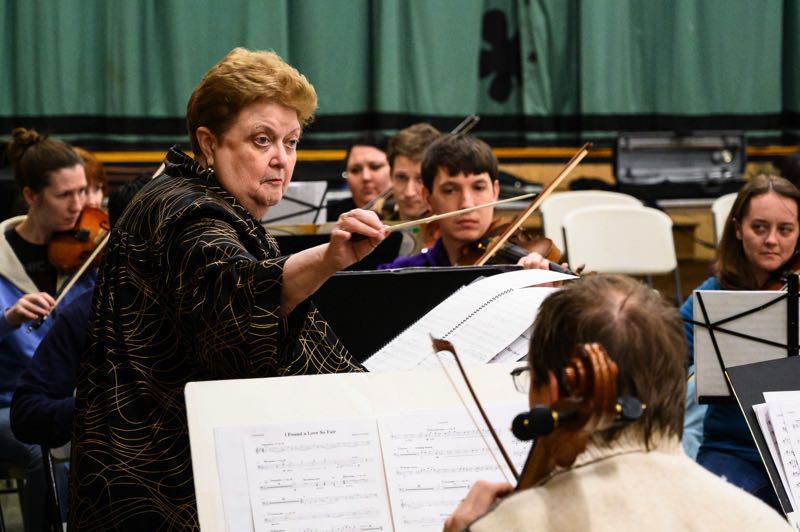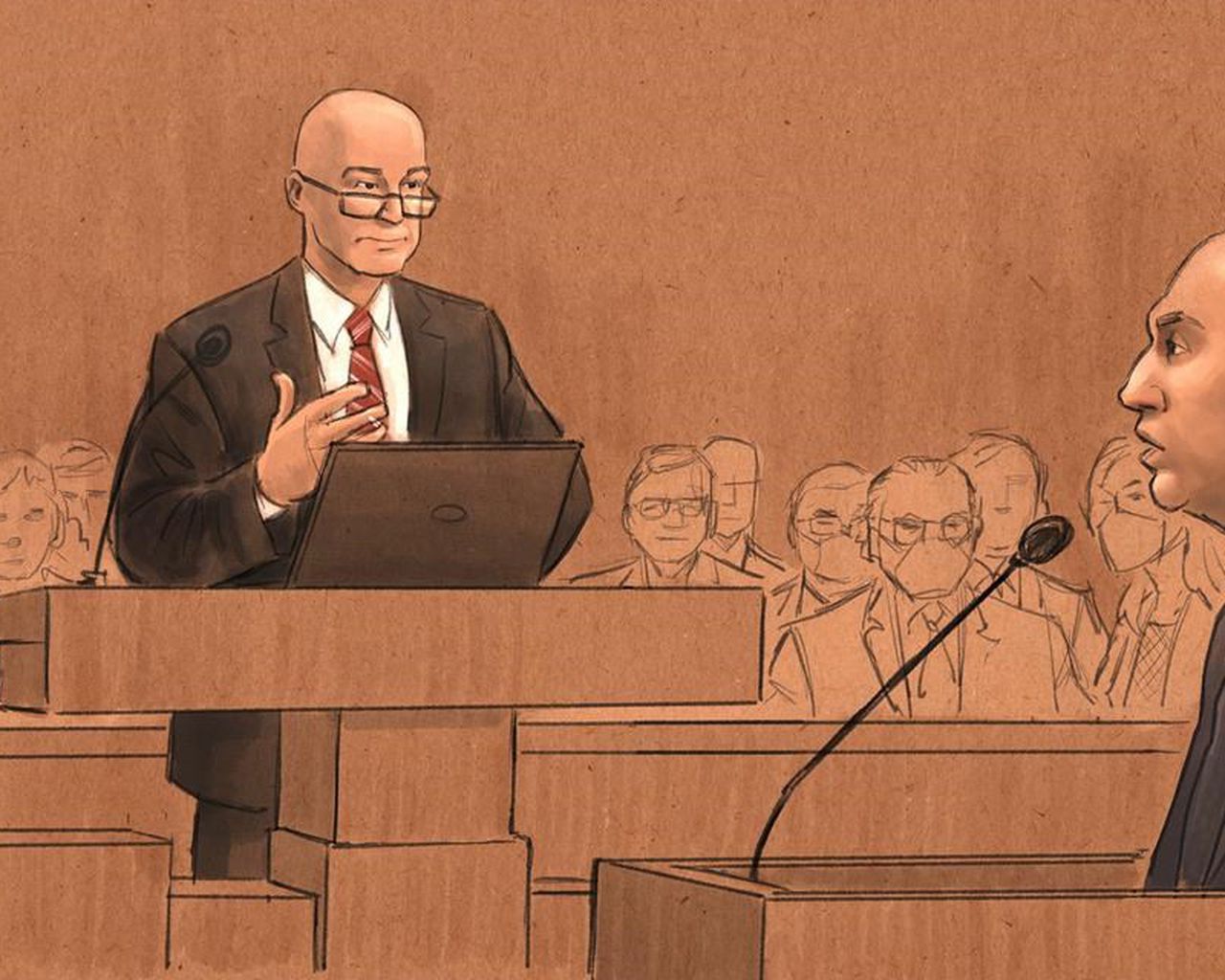Westside venues host musicals, dance troupes, singer-songwriters and more, from March 31 on.

Exhibits
GLOBAL WARNING — A group exhibit curated by Chehalem Cultural Center arts director Carissa Burkett features work addressing our global ecological concerns, displayed through Friday, April 1. Featured artists include Tyler Brumfield, Cynthia Camlin, Ann Chadwick Reid, Noelle Evans, Aron Johnston, Christina Kemp, Sheryl LeBlanc, Molly Magai, Natalie Niblack and KaitLynn Spain. Chehalem Cultural Center, 415 E. Sheridan St. in Newberg.
CREATIVE BRILLIANCE — Bonnie Burbidge, Elizabeth Higgins, Alice Hill, Jaymee Martin, Lynee Phelps, Justin Rueff, and Victoria Shaw share their artistic talents in this exhibit through April 22. All of the artists are educators at the Walters, and their work gives a glimpse into their class offerings. Glenn & Viola Walters Cultural Arts Center, 150 E. Main St. in Hillsboro.
MARCH/APRIL ARTIST RECEPTION — The Valley Art Gallery is displaying the work of local artists Andrea O’Reilly, Carol Schallberger, Dave Weber and Maureen Zoebelein in March and April. Valley Art Gallery, 2022 Main St. in Forest Grove.
SPRING AWARD SHOW — Village Gallery of Arts exhibits award-winning artwork through May 1. Mixed-media artist Kerry Schroeder is this year’s juror, while artist Laura Hopper’s “big and bold painting” will be showcased. Village Gallery of Arts, 1060 N.W. Saltzman Road in Cedar Mill.
CELILO – NEVER SILENCED — The Patricia Reser Center for the Arts hosts “Celilo — Never Silenced,” featuring the work of Indigenous artists Don Bailey, Rick Bartow, Joe Cantrell, Jonnel Covault, Ed Edmo, Joe Fedderson, Analee Fuentes, Sean Gallagher, Lillian Pitt, Pah-tu Pitt, Richard Rowland, Sara Siestreem, Gail Tremblay, and Richard York, through June 5. Artwork depicts and explores the history of Wyam (Celilo Falls), a sacred ground, gathering place and important fishery for generations destroyed by the construction of The Dalles Dam in 1957. The Patricia Reser Center for the Arts, 12625 S.W. Crescent St. in Beaverton.
SWEDISH CABINS — Cultural nonprofit organization Nordic Northwest presents the exhibit “Swedish Cabins: The Legacy of Henry Steiner and Fogelbo,” on display through June 5. Nordia House, 8800 S.W. Oleson Road in Garden Home.
FIRE & ICE — Form, technique and subject are contrasted in this exhibit from April 5 through May 20. Presented are ceramic works by East Creek Art, depicting flame and ash, and photographs by Don Jacobsen, showing ice formations along the Columbia River Gorge and thermal pools at Yellowstone National Park. A reception will be held from 5-8 p.m. Tuesday, April 5. Glenn & Viola Walters Cultural Arts Center, 150 E. Main St. in Hillsboro.

Music
CHRIS COUCH — The frontman and chief songwriter of World’s Finest brings his original music to the Garage Door for a free live show from 7-10 p.m. Friday, April 1. Ages 21 and over. McMenamins Grand Lodge, 3505 Pacific Ave. in Forest Grove.
J.T. WISE DUO — Rock, blues and Americana performers play live at the Garage Door from 7-10 p.m. Saturday, April 2. This is a free, all-ages show. McMenamins Grand Lodge, 3505 Pacific Ave. in Forest Grove.
JACOB WESTFALL — Indie singer-songwriter Jacob Westfall returns to the Garage Door from 7-10 p.m. Friday, April 8. Music fans may recognize him from appearances on “American Idol” and “The Voice.” This is a free, all-ages show. McMenamins Grand Lodge, 3505 Pacific Ave. in Forest Grove.
HILLSBORO SYMPHONY ORCHESTRA — In an evening of world-renowned classical music, well-known popular arrangements, and locally composed original pieces, 7:30-9:30 p.m. Friday, April 8, the Hillsboro Symphony Orchestra presents three of its ensembles: Jazz & the Harpist, a brass quintet, and a woodwind quintet. Tickets $12 advance, $15 day of show, at cityofhillsboro.ticketspice.com/hillsboro-symphony-orchestra. All proceeds go to support the Hillsboro Symphony Orchestra. The Glenn & Viola Walters Cultural Arts Center, 527 E. Main St. in Hillsboro.
EDGE — Classic and Southern rock collide with this show from 7-10 p.m. Saturday, April 9, at the Garage Door. This is a free, all-ages show. McMenamins Grand Lodge, 3505 Pacific Ave. in Forest Grove.
OMAR SOSA & SECKOU KEITA SUBA TRIO — Cuban piano virtuoso Omar Sosa and Senegalese kora master Seckou Keita perform featuring percussionist Gustavo Ovalles at 8 p.m. Sunday, April 10. Tickets from $30 at thereser.org. Patricia Reser Center for the Arts, 12625 S.W. Crescent St. in Beaverton.
GABRIEL KAHANE — Oregon Symphony presents the world premiere of Gabriel Kahane’s new song cycle, “Magnificent Bird,” at 7:30 p.m. Thursday, April 14. At once intimate and ambitious, Kahane’s latest work toggles between personal loss and a series of public crises that continue to roil the nation. Tickets from $35 at thereser.org. Patricia Reser Center for the Arts, 12625 S.W. Crescent St. in Beaverton.
JACK MCMAHON — Featuring country blues and acoustic roots, singer-songwriter Jack McMahon performs from 7-10 p.m. Friday, April 15. This is a free, all-ages show. McMenamins Grand Lodge, 3505 Pacific Ave. in Forest Grove.
OREGON SYMPHONY — George Frideric Handel’s “Water Music” becomes a foil for five contemporary works that draw inspiration from water as the Oregon Symphony performs “Be as Water” at 7:30 p.m. Friday, April 15. Along with selections from Handel, music by Andy Akiho, Timo Andres, Inti Figgis-Vizueta, Nico Muhly and Gabriella Smith will be featured. Tickets from $35 at thereser.org. Patricia Reser Center for the Arts, 12625 S.W. Crescent St. in Beaverton.
PAUL MAUER — Now a solo act, acoustic indie-rocker Paul Mauer performs at the Garage Door from 7-10 p.m. Saturday, April 16. This is a free, all-ages show. McMenamins Grand Lodge, 3505 Pacific Ave. in Forest Grove.
COLIN MELOY — Indie folk-rock ensemble The Decemberists’ frontman and songwriter appears for a solo show at 7:30 p.m. Saturday, April 16. Tickets from $45 at thereser.org. Patricia Reser Center for the Arts, 12625 S.W. Crescent St. in Beaverton.
DAKHABRAKHA — Its name meaning “give/take” in Ukrainian, this quartet from Kyiv, the capital city of war-torn Ukraine, performs an eclectic but undeniably Ukrainian blend of folk, punk and pop music in two 7:30 p.m. shows Sunday, April 17, and Monday, April 18. Tickets from $25 at thereser.org. Patricia Reser Center for the Arts, 12625 S.W. Crescent St. in Beaverton.
THE AMERICAN REFRAIN — A celebration of jazz, this hour-long show from 7-8 p.m. Tuesday, April 19, with narration walks the audience through the tenets of the genre and how it has shaped community, culture and music. There is no charge for admission, but seats must be reserved at thereser.org. Patricia Reser Center for the Arts, 12625 S.W. Crescent St. in Beaverton.
ACOUSTIC MINDS — Identical twin sisters Jenni and Amanda Price perform their soul-tronic dance-pop at the Garage Door from 7-10 p.m. Friday, April 22. This is a free, all-ages show. McMenamins Grand Lodge, 3505 Pacific Ave. in Forest Grove.
THE BEN ROSENBLUM TRIO — Award-winning New York City jazz pianist and accordionist Ben Rosenblum leads a trio of performers in concert at 7 p.m. Friday, April 22. Tickets from $25 at chehalemculturalcenter.org. Chehalem Cultural Center, 415 E. Sheridan St. in Newberg.
SONNY HESS — Local blues legend Sonny Hess performs fiery rhythm and blues at the Garage Door from 7-10 p.m. Saturday, April 23. This is a free, all-ages show. McMenamins Grand Lodge, 3505 Pacific Ave. in Forest Grove.
JOHN SCOFIELD — Triple Grammy-winning jazz guitarist John Scofield performs a show featuring Vicente Archer, Jon Cowherd and Josh Dion at 8 p.m. Saturday, April 23. Tickets from $29.50 at thereser.org. Patricia Reser Center for the Arts, 12625 S.W. Crescent St. in Beaverton.
LISA LYNNE & ARYEH FRANKFURTER — Hear Celtic harps, rare instruments and wondrous stories from performers Lisa Lynne and Aryeh Frankfurter from 1-2 p.m. Sunday, April 24. This is a free performance most suitable for adults, held in a comfortable library hearth space. Tualatin Public Library, 18878 S.W. Martinazzi Ave.
SPRING ACCORDION CELEBRATION — Andy Mirkovich is the featured performer at the first accordion celebration in Forest Grove since October 2019, set to take place from 1:30-5 p.m. Sunday, April 24. Amateur and professional accordionists alike will entertain the audience. Tickets $5 at the door. Forest Grove Senior/Community Center, 2037 Douglas St. in Forest Grove.
TAMBUCO PERCUSSION ENSEMBLE — The four-time Grammy nominees showcase the limitless colors, voices, and expressive capabilities of percussion instruments, from the melodic strains of four marimbas to the rhythmic sounds of tapping stones, at 3 p.m. Sunday, April 24. Tickets from $35.50 at thereser.org. Patricia Reser Center for the Arts, 12625 S.W. Crescent St. in Beaverton.

Theater & Dance
ORIGINS — White Bird presents “Origins,” a hip-hop dance performance by Versa-Style Dance Company, opening 7:30 p.m. Friday, April 1. The show follows the evolution of hip-hop dance from its roots in communities of color. Showtimes 7:30 p.m. Friday and Saturday before closing with a 2 p.m. Sunday, April 3, matinee. Tickets from $19 at thereser.org. Patricia Reser Center for the Arts, 12625 S.W. Crescent St. in Beaverton.
NASSIM — The Reser presents “Nassim,” an innovative play that explores the power of language and friendship, at 7:30 p.m. Friday, April 8, and Saturday, April 9. The play features a different actor every night: Josie Seid on April 8 and Troy Metcalf on April 9. Tickets from $25 at thereser.org. Patricia Reser Center for the Arts, 12625 S.W. Crescent St. in Beaverton.
LEADING LADIES — Lakewood Theatre Co. presents “Leading Ladies,” a comedy written by Ken Ludwig and directed by Stephanie Mulligan, through Sunday, April 10. The play, in which two struggling Shakespearean actors scheme to inherit a stranger’s wealth, is described as “Some Like It Hot” meets “Twelfth Night.” Showtimes at 7:30 p.m. Thursdays, Fridays and Saturdays and 2 p.m. Sundays, plus a special showing at 7:30 p.m. Wednesday, March 23. Proof of COVID-19 vaccination or a recent negative test are required for all audience members age 12 and older. Tickets from $25 at lakewood-center.org. Lakewood Center for the Arts, 368 S. State St. in Lake Oswego.
DON’T HUG ME — Broadway Rose Theatre Co. presents “Don’t Hug Me,” a Minnesota musical comedy directed and choreographed by Dan Murphy, beginning Thursday, April 14. The production is described as “Fargo” meets “The Music Man,” without the blood or the trombones. Showtimes are 7:30 p.m. Thursdays, Fridays and Saturdays and 2 p.m. Saturdays and Sundays, except on Easter Sunday, through May 8. Tickets from $5 at broadwayrose.org. Broadway Rose New Stage, 12850 S.W. Grant Ave. in Tigard.
SEA SICK — The Reser presents the Theatre Center’s “Sea Sick,” written and performed by Alanna Mitchell and directed by Franco Boni with Ravi Jain, with two showings at 7:30 p.m. Thursday, April 21, and Friday, April 22. An award-winning Canadian journalist and author, Mitchell explores the deep topics of climate change and the changing state of the global ocean, but not without her own wit and hope for the future. Tickets $35 at thereser.org. Patricia Reser Center for the Arts, 12625 S.W. Crescent St. in Beaverton.
You count on us to stay informed and we depend on you to fund our efforts. Quality local journalism takes time and money. Please support us to protect the future of community journalism.















